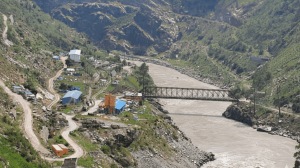Calling for “global unity, leadership and solidarity”, Prime Minister Narendra Modi on Saturday emphasised the “special responsibility of democratic and transparent societies to prevent future pandemics”.
Addressing the G-7 outreach session via video conference, Modi also expressed India’s commitment to support collective endeavours to improve global health governance.

This is an oblique reference to the lack of transparency displayed by China in dealing with the Covid-19 outbreak and the World Health Organisation’s poor leadership as the crisis engulfed the world.
According to sources, Modi said there should be “one earth, one health” approach, which was supported by German Chancellor Angela Merkel. Sources said India’s emphasis on keeping “open supply chains for vaccine raw materials and components to help enhance vaccine production received widespread support”.
This came days after French President Emanuel Macron supported India’s demand for lifting restrictions on export of raw materials needed to manufacture vaccines.
The session, titled ‘Building Back Stronger – Health’, focussed on global recovery from the pandemic and strengthening resilience against future pandemics.
Modi sought the G-7’s support for a proposal moved by “India and South Africa at the WTO for a TRIPS (Trade-Related Aspects of Intellectual Property Rights) waiver on Covid-related technologies”. Sources said Australian PM Scott Morrison and others came out strongly in support of this.
Story continues below this ad
The Prime Minister highlighted India’s “whole of society” approach to fight the pandemic, synergising the efforts of all levels of government, industry and civil society.
He also explained India’s successful use of open source digital tools for contact tracing and vaccine management, and conveyed the country’s willingness to share its experience and expertise with other developing countries.
Modi expressed appreciation for the support extended by the G-7 and other guest countries during the recent wave of Covid infections in India.
British Prime Minister Boris Johnson had invited Modi to attend the outreach component of the G-7 Summit, along with Australia, South Korea and South Africa. Modi is scheduled to speak at two more sessions on Sunday.
Story continues below this ad
On Saturday, the G-7 leaders are discussing the ‘100 Days Mission’ — an ambitious mission to have safe and effective vaccines, therapeutics and diagnostics within 100 days of a future pandemic threat being identified.
The UK Government’s Chief Scientific Adviser, Sir Patrick Vallance, and Melinda French Gates will address the leaders at the Carbis Bay Summit, setting out how governments, industry, international organisations and others should work together to speed up the world’s response to future pandemic threats.
India has engaged closely with the G-7 on health, climate and environment, digital technology and economic resilience, officials said.
While the theme for the Summit is ‘Build Back Better’, the UK has outlined four priority areas for its presidency: leading the global recovery from the pandemic while strengthening resilience against future pandemics; promoting future prosperity by championing free and fair trade; tackling climate change and preserving the planet’s biodiversity; and championing shared values and open societies.









